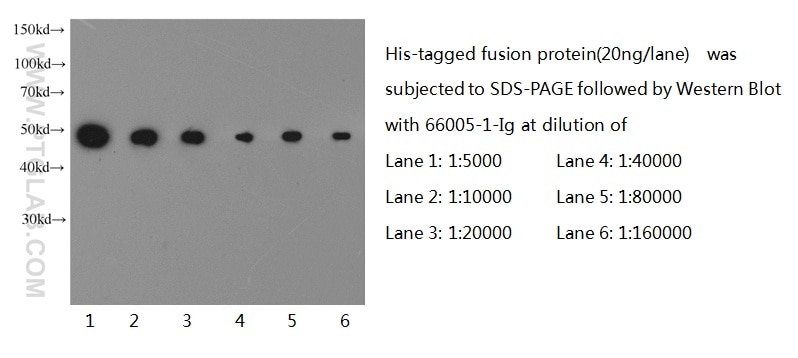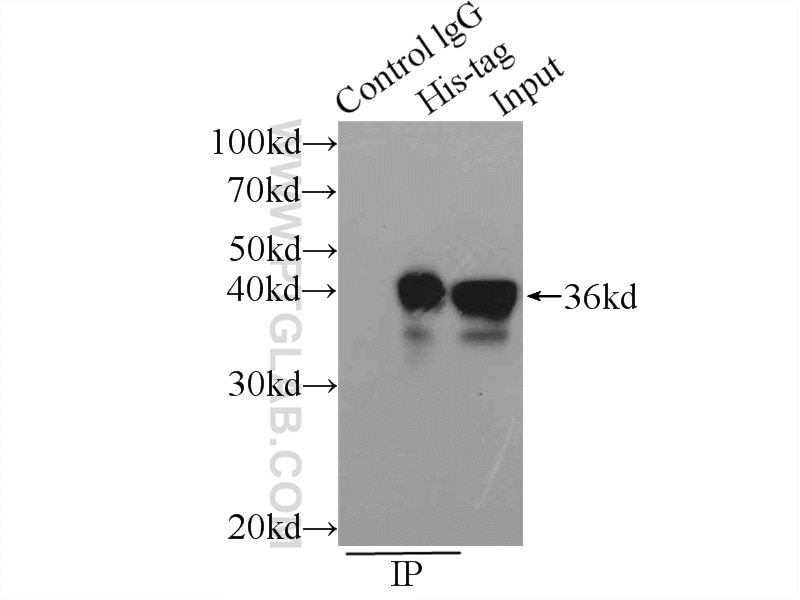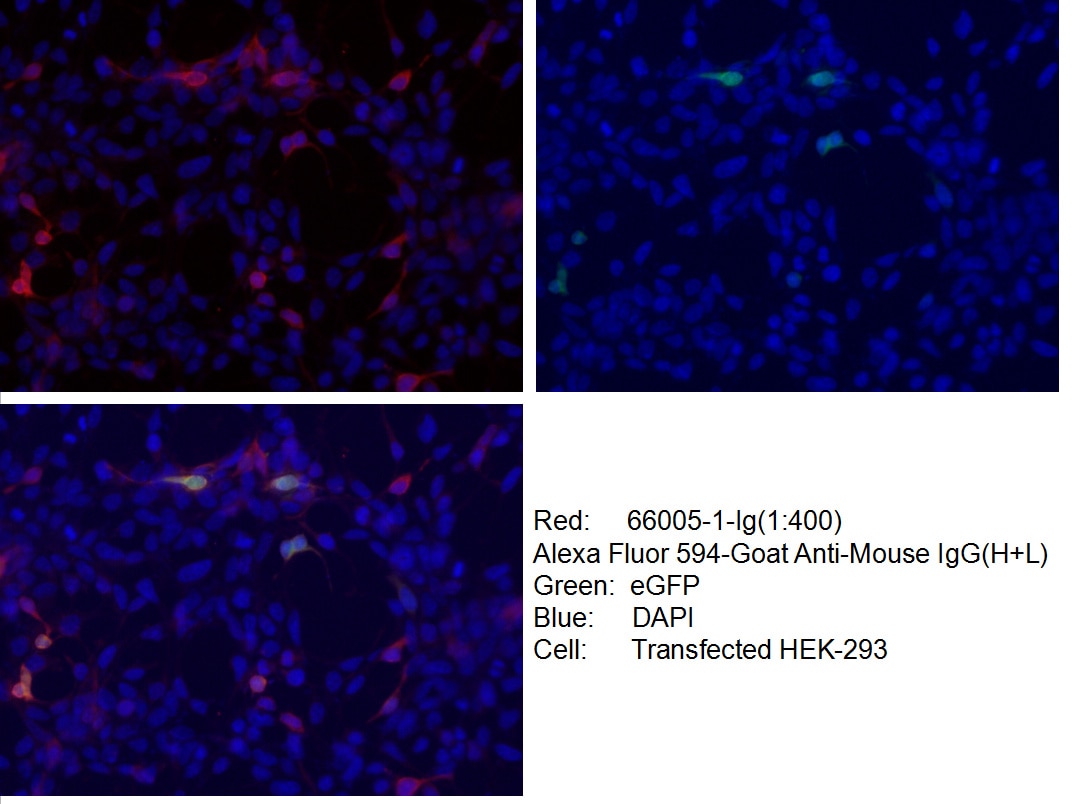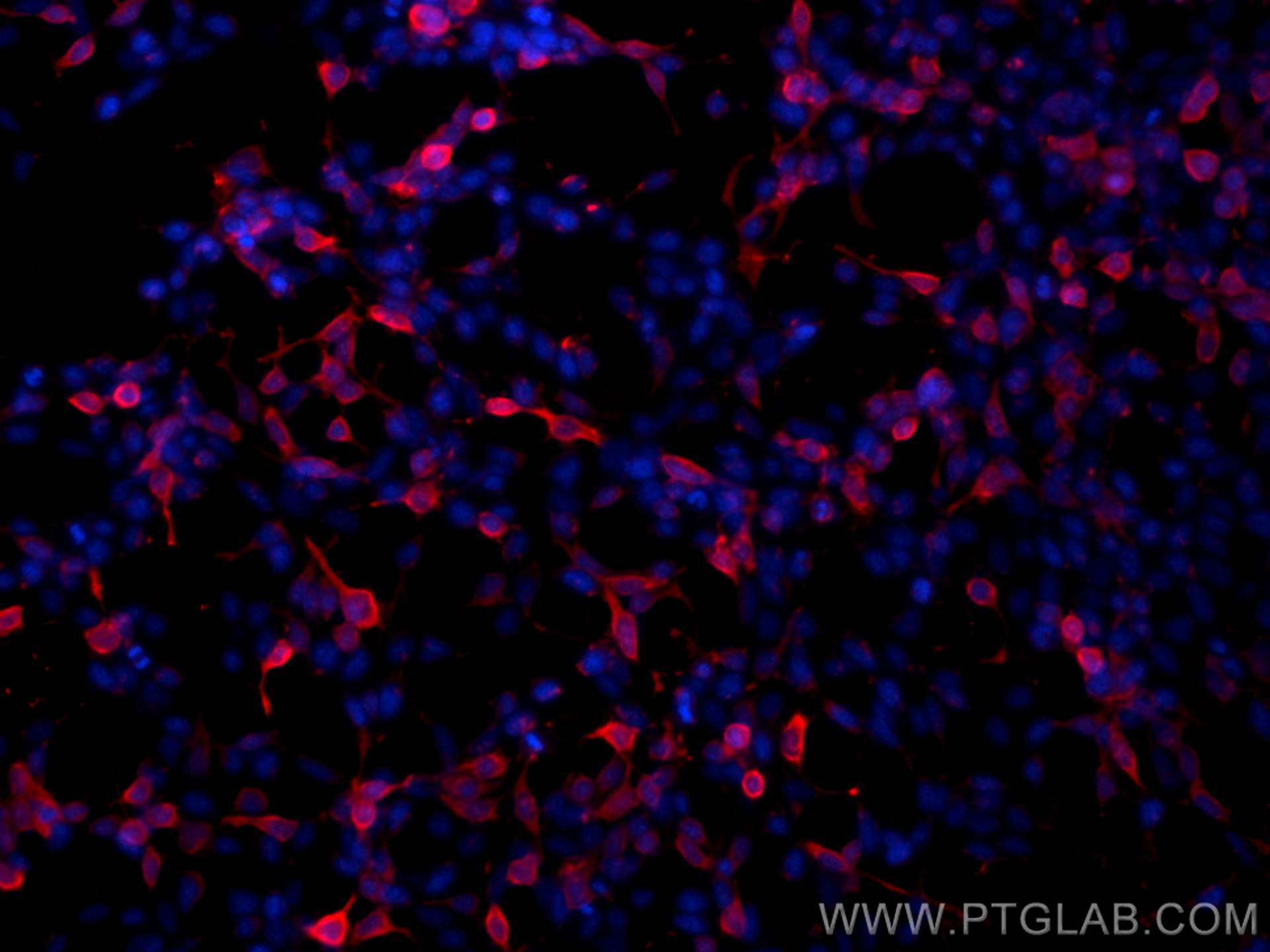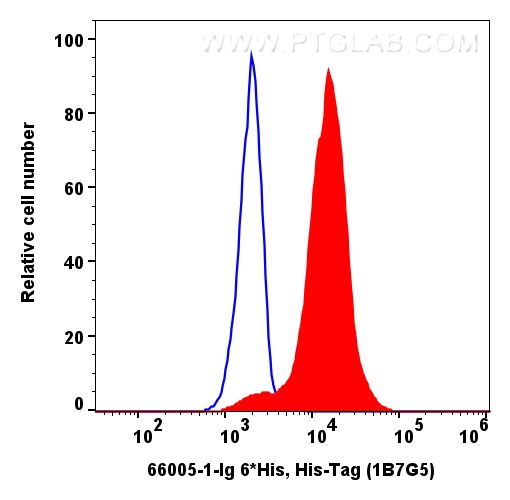Anticorps Monoclonal anti-6*His, His-Tag
6*His, His-Tag Monoclonal Antibody for WB, IF/ICC, FC, IP, ELISA
Hôte / Isotype
Mouse / IgG1
Réactivité testée
Protéine recombinante
Applications
WB, IF/ICC, FC, IP, ELISA
Conjugaison
Non conjugué
CloneNo.
1B7G5
N° de cat : 66005-1-PBS
Synonymes
Galerie de données de validation
Informations sur le produit
66005-1-PBS cible 6*His, His-Tag dans les applications de WB, IF/ICC, FC, IP, ELISA et montre une réactivité avec des échantillons Protéine recombinante
| Réactivité | Protéine recombinante |
| Hôte / Isotype | Mouse / IgG1 |
| Clonalité | Monoclonal |
| Type | Anticorps |
| Immunogène | Peptide |
| Nom complet | 6*His, His-Tag |
| Masse moléculaire calculée | 0.84 kDa |
| Symbole du gène | |
| Identification du gène (NCBI) | |
| Conjugaison | Non conjugué |
| Forme | Liquide |
| Méthode de purification | Purification par protéine G |
| Tampon de stockage | PBS only |
| Conditions de stockage | Store at -80°C. 20ul contiennent 0,1% de BSA. |
Informations générales
Protein tags are a protein or peptide sequences located either on the C- or N- terminal of the target protein. His-tag is often used for affinity purification and binding assays. Expressed. The His-tag antibody is a useful tool for monitoring of the His-tagged proteins and recognizes His-tags placed at N-terminal, C-terminal, and internal regions of fusion proteins expressed in bacteria, insect, and mammalian cells. A His-tag (polyhistidine tag) consists of at least six histidine residues that are located at the N- or C-terminus of recombinant proteins. It is commonly used for affinity purification and protein binding experiments.
The recombinant protein has only 6 histidine residues as a tag. Is this sufficient to be detected by your antibody? Is the His-tag antibody able to detect N-terminal and C-terminal His tags?
The His-tag antibody was raised using a 6-His tag peptide as the immunogen, which is ~1 kDa. Some scientists use more than 6 histidine residues as a tag for recombinant proteins to increase affinity to metal ions. A 6-histidine tag is sufficient for specific recognition by the His-tag antibody. It is able to recognize both N-terminal and C-terminal His tags of recombinant proteins produced in various expression systems, including bacteria, yeasts, insect, and mammalian cells.
After purification, I can detect my protein by western blotting using the His-tag antibody but can also see additional bands running lower. What might they represent?
They may represent cleavage products of the recombinant protein. Unspecific protein cleavage can occur during protein production (e.g., in bacteria) or protein purification post the cell lysis steps. Changing expression conditions (temperature, time, induction methods, medium) and using protease inhibitors during purification helps to minimize protein degradation. Additional steps, such as ion exchange, size exclusion, or chromatography, allow isolation of the full-length product.
Can a His-tag antibody be used in applications other than western blotting?
Yes, this antibody has been successfully used for immunofluorescence (IF), immunoprecipitation (IP), and indirect ELISA analysis.
